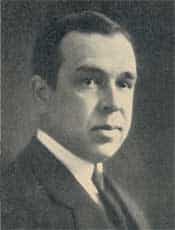THE SCHOOL & FAMILY CATECHIST
The Westminster Shorter Catechism, Question 12.
12. What special act of Providence did God exercise towards man, in the state wherein he was created?
A. When God had created man, he entered into a covenant of life with him, upon condition of perfect obedience, forbidding him to eat of the tree of knowledge of good and evil, upon the pain of death.
EXPLICATION.
He entered into a covenant of life.—That is, God made and agreement with Adam, in which he promised to give everlasting life to him and his descendants, if they continued obedient.
Upon condition of perfect obedience.—This shows, that the promise of everlasting life, above mentioned, would not be performed, unless man continued to keep all God’s commandments perfectly, without sinning.
Forbidding him to eat.—Commanding him not to eat.
The knowledge of good and evil.—A tree, that grew in the midst of the garden of Eden, was so called, because Adam, by eating of its fruit, when God commanded him not to do it, knew at once both the good which he had lost, and the evil, which he had brought upon himself and his descendants.
Upon pain of death.—That is, Adam and his descendants, or all mankind, were to be punished with death, if ever they should break God’s commandments by sinning against him.
ANALYSIS.
In this answer we are taught five things:
- That God made a covenant, or agreement with Adam.—Hosea 6:7. They, like men, (or like Adam.) have transgressed the covenant.—See also Genesis 2:16-17.
2.That this covenant was a covenant of life.—Romans 7:10. The commandment was ordained to life.
- That the condition of this covenant, (or terms of this agreement,) was perfect obedience.—Romans 10:5. The man which doeth those things shall live by them.
- The man was forbidden to eat of the tree of knowledge of good and evil.—Genesis 2:17. But of the tree of the knowedge of good and evil, thou shalt not eat of it.
- That the punishment threatened for breaking that covenant was death.—Genesis 2: 17. In the day thou eatest thereof, thou shalt surely die.

